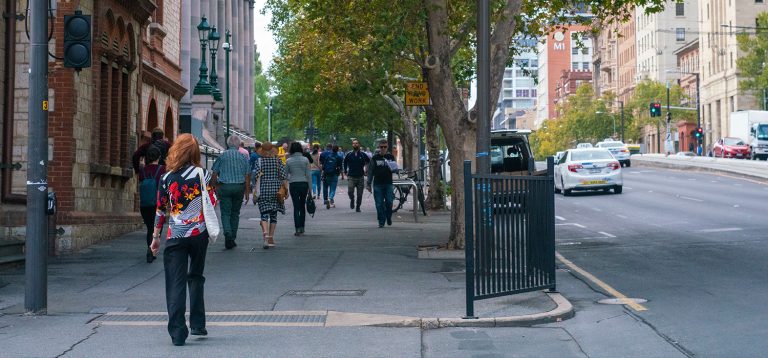State and territory governments around Australia have the power to keep women and children safe, by better regulating the way alcohol is marketed, sold and delivered into homes.
But right now the intense lobbying from alcohol companies, who wield significant influence in the corridors of power is stopping this from happening.
Across Australia, there is clear recognition that the prevention of family violence is a priority. Acknowledging the harmful role of alcohol in family violence is an important part of this wider effort to keep women and children safe.
Controlling the availability of alcohol in the community is an important part of a holistic response to family violence prevention. Australian evidence shows increased alcohol outlets, particularly packaged liquor outlets like bottle-shops, increases rates of family violence.
A further study in New South Wales found the extension to takeaway alcohol sales from a 10pm close to an 11pm close resulted in a statistically significant increase in domestic violence assaults, equating to 1,120 family violence assaults occurring in the 38-months after trading hours were extended.
The explosion of the often-unregulated online sale and delivery of alcohol, making every phone a bottleshop, is also increasing the risk of violence. The rapid delivery of alcohol into homes in as little as 20 minutes is further exacerbating these harms.
We’re calling for common-sense measures to regulate alcohol and prevent violence against women and children, these include:
- Including the prevention of gender based and family violence as a primary object of the liquor acts in each state and territory.
- Ensuring that alcohol is not sold by delivery and take-away after 10pm.
- Introducing a safety pause for the delivery of alcohol of 2 hours between when alcohol is ordered and delivered.
- Regulating the density of alcohol outlets.
- Addressing predatory and high-risk marketing that pushes bulk alcohol sales, including data driven marketing.
The story so far
For years, FARE has drawn attention to the role of alcohol in family violence and advocating for action to prevent family violence. We have collaborated with organisations and shared policy recommendations in the form of submissions at state and federal levels.
In 2015, FARE published a report The Hidden Harm: Alcohol’s Impact on Children and Families, which revealed the full extent of alcohol-related family and domestic violence in Australia.
The same year, FARE’s National Framework for Action to Prevent Alcohol-related Family Violence was launched by Australian of the Year Rosie Batty at Parliament House in Canberra. This framework proposed policies and programs that Australian governments can implement to have a real and tangible impact on preventing and reducing alcohol-related family violence. The Senate Committee examining domestic violence in Australia acknowledged the role of alcohol in family violence and endorsed the framework developed by FARE.
The seriousness of alcohol’s role in family, domestic and intimate partner violence also became evident during the COVID-19 pandemic. In partnership with FARE, Women’s Safety NSW released Family Violence and Alcohol During COVID-19, a report which assessed the caseload of a range of family violence specialists in crisis support, counselling, court advocacy and supported accommodation.
In 2021, the Victorian Government implemented changes relating to the online sale and delivery of alcohol, including mandatory ID checks when delivering alcohol and the introduction of a licence specific to online sale and delivery.
In 2024, dozens of community, health and Aboriginal organisations join FARE in signing an open letter to National Cabinet, calling for immediate action on better alcohol regulation to reduce rates of men’s violence against women and children.
Following ongoing advocacy, former FARE CEO Caterina Giorgi joined 70 experts from across the country at the Crisis Talks Into Missing and Murdered Women, convened by Domestic Violence Commissioner Micaela Cronin.
FARE launched a campaign calling for action on alcohol and gendered violence.





